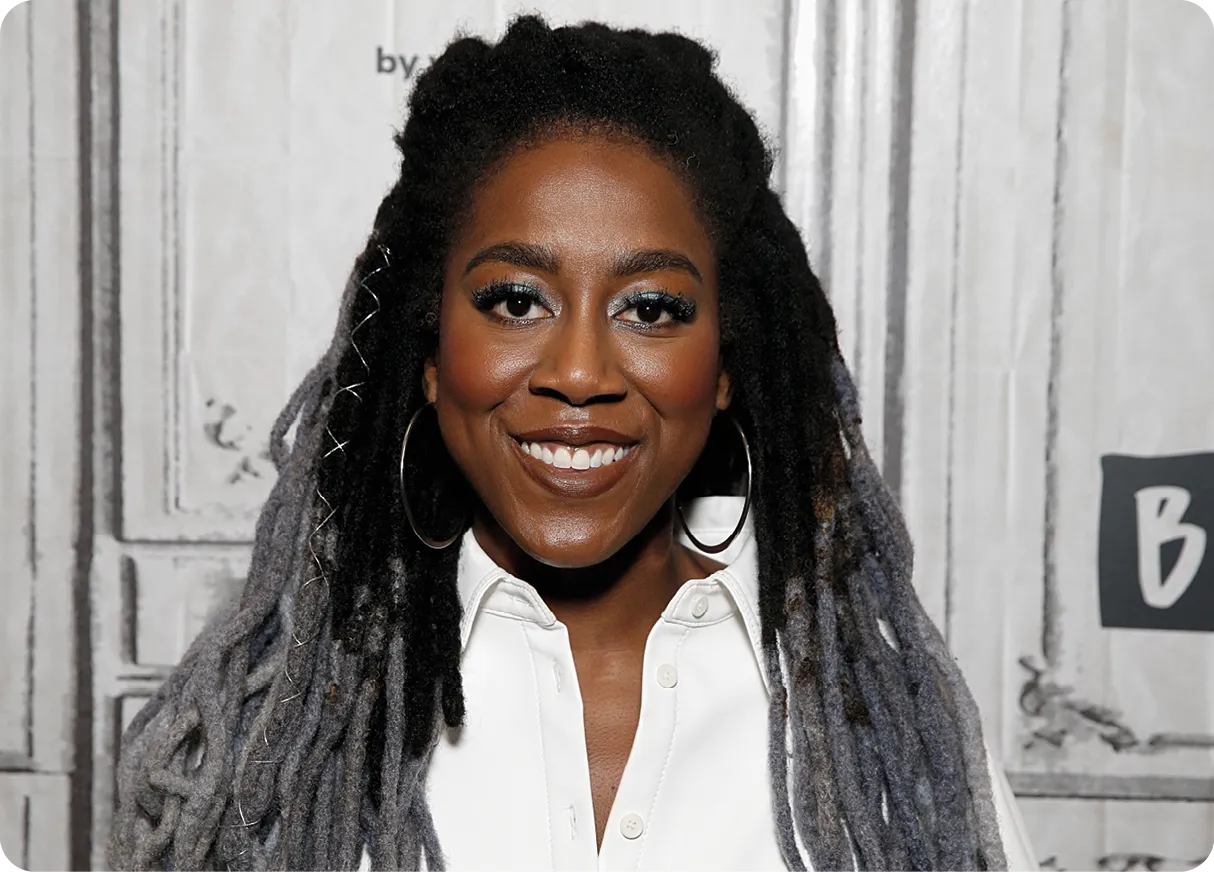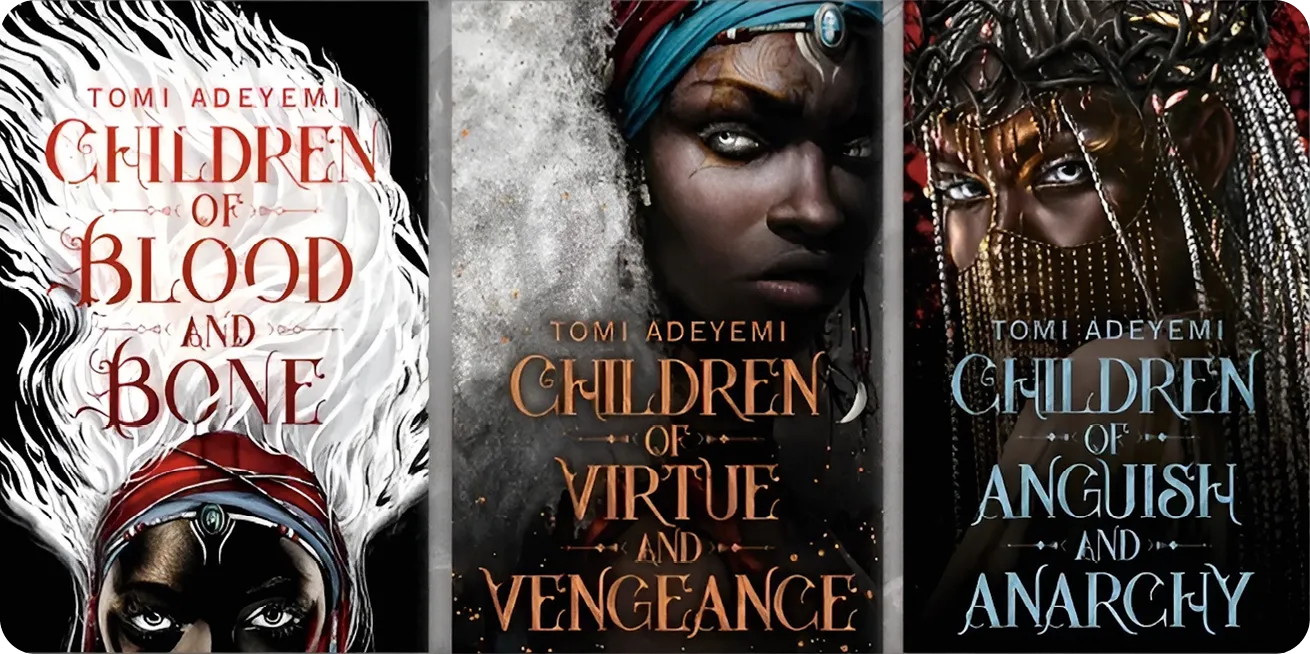Case Study 12
Axe 6
Objet d'étude 1
New voices from Nigeria
Ressource affichée de l'autre côté.
Faites défiler pour voir la suite.
Faites défiler pour voir la suite.
Act out a pre-show brief.
Chimamanda Ngozi Adichie has become a leading voice in Nigerian literature, inspiring a new generation of writers. Now, she and Tomi Adeyemi are set to appear on the Late Show with Stephen Colbert, the famous talk show host. As the show prepares to go live, Colbert's assistant is gathering information on the writers and making final preparations. In this backstage moment, you will step into one of two roles: Colbert's assistant, delivering a last-minute brief, or Stephen Colbert himself, reviewing the notes and getting ready before the interview. Work together to ensure you're ready for the show!
Chimamanda Ngozi Adichie has become a leading voice in Nigerian literature, inspiring a new generation of writers. Now, she and Tomi Adeyemi are set to appear on the Late Show with Stephen Colbert, the famous talk show host. As the show prepares to go live, Colbert's assistant is gathering information on the writers and making final preparations. In this backstage moment, you will step into one of two roles: Colbert's assistant, delivering a last-minute brief, or Stephen Colbert himself, reviewing the notes and getting ready before the interview. Work together to ensure you're ready for the show!


Ressource affichée de l'autre côté.
Faites défiler pour voir la suite.
Faites défiler pour voir la suite.
1American-African Stories
American-African Stories
What's the difference
between an African-American
and an American-African?
From such a distinction
springs a deep-seated discussion of race in Chimamanda
Ngozi Adichie's third novel,
Americanah. Adichie, born in
Nigeria but now living both
in her homeland and in the
United States, is an extraordinarily self-aware thinker
and writer, possessing the ability to lambaste society without
sneering or patronizing or polemicizing. For her, it seems no
great fear to balance high-literary intentions with broad social
critique. Americanah examines blackness in America, Nigeria
and Britain, but it's also a steady-handed dissection of the
universal human experience – a platitude made fresh by the
accuracy of Adichie's observations.
So an African-American is a black person with long generational lines in the United States, most likely with slave ancestors. She might write poetry about “Mother Africa,” but she's pleased to be from a country that gives international aid rather than from one that receives it. An American-African is an African newly emigrated to the United States. In her native country, she didn't realize she was black – she fit that description only after she landed in America. In college, the African-American joins the Black Student Union, while the American-African signs up with the African Students Association.
So an African-American is a black person with long generational lines in the United States, most likely with slave ancestors. She might write poetry about “Mother Africa,” but she's pleased to be from a country that gives international aid rather than from one that receives it. An American-African is an African newly emigrated to the United States. In her native country, she didn't realize she was black – she fit that description only after she landed in America. In college, the African-American joins the Black Student Union, while the American-African signs up with the African Students Association.
Ressource affichée de l'autre côté.
Faites défiler pour voir la suite.
Faites défiler pour voir la suite.


Vidéo associée
(Timing: from 0:00 to 2:49)
Ressource affichée de l'autre côté.
Faites défiler pour voir la suite.
Faites défiler pour voir la suite.
Chimamanda Ngozi Adichie grew up
in Nigeria. Her novel Americanah
was published in 2013 and has
received several prizes. It was named
one of The New York Times Ten Best
Books of the year. She divides her
time between Nigeria and the U.S.
Her latest novel Dream Count was
released in 2025.
Ressource affichée de l'autre côté.
Faites défiler pour voir la suite.
Faites défiler pour voir la suite.
Step 1
1
Watch the video. What impact
did the books she read as a
child have on her?
2
Read the text. Why is
the distinction between
“African-American” and
“American-African” important
in Americanah?
3
Watch the video.
How does her
speech relate to the themes
explored in Americanah?
Action!
As Stephen Colbert's assistant, your job is to help prepare his show notes. Write a list of key information on Chimamanda Ngozi Adichie on a note card. Make it concise!
Ressource affichée de l'autre côté.
Faites défiler pour voir la suite.
Faites défiler pour voir la suite.
2Redefining fantasy


Tomi Adeyemi attends an event in New York City to discuss Children of Virtue and Vengeance, 2019.
(Timing: from 0:00 to 1:49)
Ressource affichée de l'autre côté.
Faites défiler pour voir la suite.
Faites défiler pour voir la suite.
Tomi Adeyemi is an American fantasy writer. Born in the U.S. to Nigerian parents,
she grew up in Chicago and was not exposed to her Nigerian heritage until she became
an adult. She considers her novels to be “a love letter to her Nigerian culture”.
Ressource affichée de l'autre côté.
Faites défiler pour voir la suite.
Faites défiler pour voir la suite.
Step 2
1
What was Tomi Adeyemi's
reaction when her book was
released?
2
How does she sum up
Children of Blood and Bone?
3
Explain what is different
about her fantasy books
compared to classics.
Action!
Record a voice memo for Stephen Colbert about Children of Blood and Bone, so he will know the basics even without reading it!
Cliquez pour accéder à un module d'enregistrement audio
Enregistreur audio
Ressource affichée de l'autre côté.
Faites défiler pour voir la suite.
Faites défiler pour voir la suite.
3Journey to success


“Tomi Adeyemi explains the 5-year hiatus, talks making book trilogy into a movie”, Tamron Hall Show, 2024.
(Timing: from 0:00 to 2:22)
Ressource affichée de l'autre côté.
Faites défiler pour voir la suite.
Faites défiler pour voir la suite.
Step 3
1
What clues do the
book covers give as to
the plot, setting and
characters in the stories?
2
Pick out elements
showing the success of
Tomi Adeyemi's books.
Action!
To generate buzz for the interview, write a social media post teaser, hyping up Tomi Adeyemi for viewers.
Ressource affichée de l'autre côté.
Faites défiler pour voir la suite.
Faites défiler pour voir la suite.
Ready...
- Choose your role: Stephen Colbert or the assistant.
- Gather your notes and list key topics and biographical information about the two writers.
Steady...
- As the assistant, prepare possible interview questions, and give Colbert tips on what to focus on.
- As Colbert, prepare to ask for clarification, extra information, or a fun twist or anecdote.
Go!
- Act out the dialogue.
- Remember the show is about to start, so imagine the rush as Colbert flips through the notes and gets ready to go on air!
Cliquez pour accéder à un module d'enregistrement audio
Enregistreur audio
Une erreur sur la page ? Une idée à proposer ?
Nos manuels sont collaboratifs, n'hésitez pas à nous en faire part.
j'ai une idée !
Oups, une coquille

